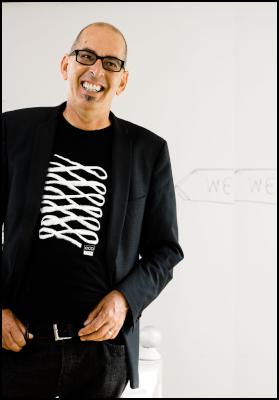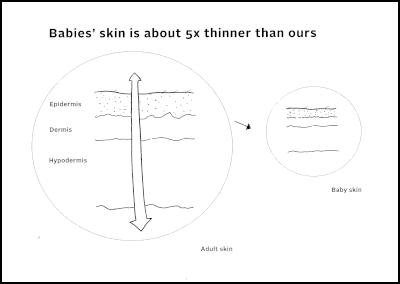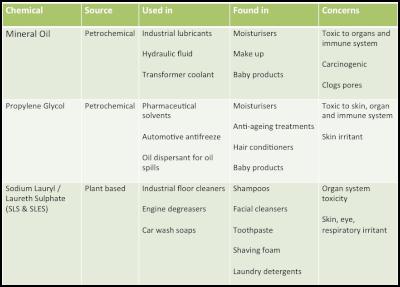What we put on our skin is just as important as the food we eat.

Malcolm Rands is founder and CEO of ecostore.
For some years now we’ve been raising awareness about the importance of looking after your skin. While most of us are conscious about what we’re putting into our bodies, through the food we eat, we can sometimes forget that what we put onto our skin is just as important.
Your skin is your largest organ, it lives and breathes, and is actually porous at a microscopic level. Some substances can be absorbed directly into your bloodstream through the millions of tiny openings in your skin and unlike your stomach, which has enzymes to break down chemicals your food, your skin is not equipped to deal with the nasty chemicals it is exposed to.
Our Laundry detergent is one of our most important beauty products.
We can be exposed to a range of potentially harmful and unnecessary chemicals from the ordinary household products we use everyday. Residual enzymes from your laundry products can be trapped in clothing, sheets or underwear which means they are up against your skin day and night and can be reactivated (especially by sweat and moisture). If they continue doing the job they were designed for, which is removing fats and protein they can cause irritation or other allergic reactions.
Children and babies are more vulnerable to the potentially harmful effects of nasty chemicals.
The delicate skin of babies and young children is about five times thinner than an adults. Infant skin is still developing it’s natural protective barrier until they are at least 12 months old. It is also a lot more permeable than an adults, meaning it more readily absorbs anything that gets put onto it (lotions, soaps) or against it (detergent residues). This is why you see so many babies with eczema and other skin irritations.

Click for big version.
3 chemicals used in everyday products to look out for: For more information on these and other chemicals to avoid, please see the Nasty Chemicals Index on our website.

Click for big version.
Beware of products that claim to be “natural” and “environmentally friendly”.
Plant-based ingredients are more sustainable than petrochemical ones but just because an ingredient is ‘natural’ or plant-based, doesn’t mean its safe for your health. SLS (Sodium Lauryl Sulphate), SLES (Sodium Laureth Sulphate and CAPB (Cocamidopropyl Betaine) are plant-based ingredients that we won’t use because we believe they’re not safe for your skin. SLS and CAPB are often used in eco products but SLS is also used as an industry benchmark for skin irritation and CAPB was voted allergen of the year by the American Contact Dermatitis Society. (2004)
3 Things You Can Do to Make a Big Difference to Your Family’s Health.
1. Be curious. Be
curious about what you buy to clean your house, your
clothes and your bodies. And remember, just because it’s
better for the environment doesn’t mean it’s better for
you!
2. Watch out for anionic surfactants in the
ingredients list. This term is often used to hide the fact
that the product contains SLS
3. Remember the next time
you go shopping – what you put on your body is just as
important as what you put in your body and let that guide
you in the choices you make.
How do you know who to trust?
1. Look for companies that give you a
full list of ingredients on their labels. That tells you
something about their values and ethics and shows you they
have nothing to hide.
2. Use online resources like:
EWG’s Skin Deep
website. A useful safety guide for finding out the
toxicity of ingredients commonly used in body and baby care
products and some cleaning products.
ecostore
– Index of Nasty chemicals tells you which
ingredients to avoid and why.
Is it easy to be green and healthy?
It’s easier than it’s ever been to be make healthier choices BUT when it comes to knowing that what you buy is the real thing, it’s not so easy. There are a lot more companies out there vying for that green dollar and some of them are going to great lengths to make you think their product is the best choice. Again, be curious.
ENDS




 National Youth Theatre: 140 Christchurch Kids Shine In National Youth Theatre’s Historic CATS Premiere
National Youth Theatre: 140 Christchurch Kids Shine In National Youth Theatre’s Historic CATS Premiere NZ Symphony Orchestra: NZSO To Tour Masterworks By Mozart, Beethoven, Haydn And More
NZ Symphony Orchestra: NZSO To Tour Masterworks By Mozart, Beethoven, Haydn And More Journal Of Public Health: Vape Shops Cluster Around Schools
Journal Of Public Health: Vape Shops Cluster Around Schools Timaru District Council: Aigantighe Art Gallery Hosts An Iconic Robin White Touring Exhibition
Timaru District Council: Aigantighe Art Gallery Hosts An Iconic Robin White Touring Exhibition Victoria University of Wellington: Dame Winnie Laban Awarded Honorary Doctorate Recognising Achievements For Pasifika
Victoria University of Wellington: Dame Winnie Laban Awarded Honorary Doctorate Recognising Achievements For Pasifika  HESSA: This Isn’t Fair—And It’s Time To Fix It - HESSA Petition Calls For Inclusive Student Sports
HESSA: This Isn’t Fair—And It’s Time To Fix It - HESSA Petition Calls For Inclusive Student Sports